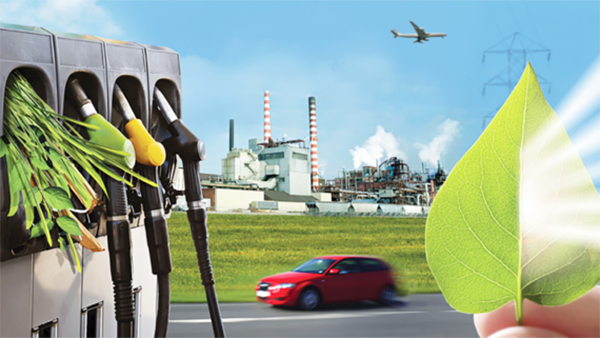The U.S. Department of Energy (DOE) announced $118 million in funding for 17 projects to accelerate sustainable biofuel production for U.S. transportation and manufacturing needs.
Biofuels and bioproducts
The selected 17 projects, located at universities and private companies, will boost domestic production of biofuels and bioproducts by advancing the development of biorefineries, from pre-pilot to demonstration, to create sustainable fuels that reduce emissions associated with fossil fuels.
President Biden’s goals
Funding for this opportunity supports President Biden’s goals of delivering an equitable and clean energy future. And putting the United States on a path to net-zero emissions, economy-wide, no later than 2050.
Projects selected under this funding opportunity will contribute to achieving DOE’s goal of cost-competitive biofuels. And at least a 70% reduction in greenhouse gas (GHG) emissions by 2030.
“Biofuels are a versatile tool because they have the immediate potential to power our ships, trains, airlines, and heavy-duty vehicles. Which contribute greatly to total carbon emissions. With a significantly reduced carbon footprint. DOE’s investments are helping to build a domestic bioenergy supply chain that increases America’s energy independence, creates jobs, and accelerates the adoption of cleaner fuels for our transportation needs,” said U.S. Secretary of Energy Jennifer M. Granholm.
Low-carbon fuels
Made from widely available domestic feedstocks and advanced refining technologies, energy-dense biofuels offer a pathway to low-carbon fuels that can reduce greenhouse gas emissions across the transportation sector and accelerate the bioeconomy.
Funding for new biorefinery process systems can be a barrier to the commercialization of advanced biofuels, and this funding of the 17 projects will reduce technology uncertainties and enable industry deployment.
The selected projects include pre-pilot, pilot, and demonstration projects that will scale up existing biomass-to-fuel technologies, eventually creating millions of gallons per year of low-carbon fuel. By investing in these technologies, the projects will create high-paying jobs in rural and underserved communities in nine states.
The plans submitted by the selected projects show the intent to collaborate with local school districts. This to educate and train a new bioenergy workforce.
National Transportation Decarbonization Plan
In addition, the funded projects align with the renewable fuels goals of the first National Transportation Decarbonization Plan. This is a multi-agency framework to reduce emissions, build a strong transportation workforce and ensure U.S. energy independence.
The projects also support the U.S. Sustainable Aviation Fuel Grand Challenge goal of enabling the production of 3 billion gallons of sustainable aviation fuel annually by 2030. And 35 billion gallons annually by 2050.
Award amounts range from $500,000 to $80 million, with most receiving at least $2 million. DOE’s Bioenergy Technologies Office (BETO) will administer the selected projects, subject to final award negotiations and additional eligibility review.
It can be of your interest: Roadmap for the U.S. offshore wind supply chain


